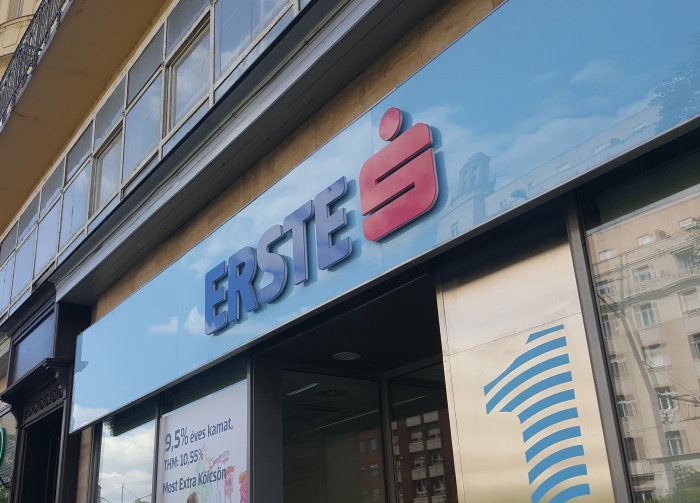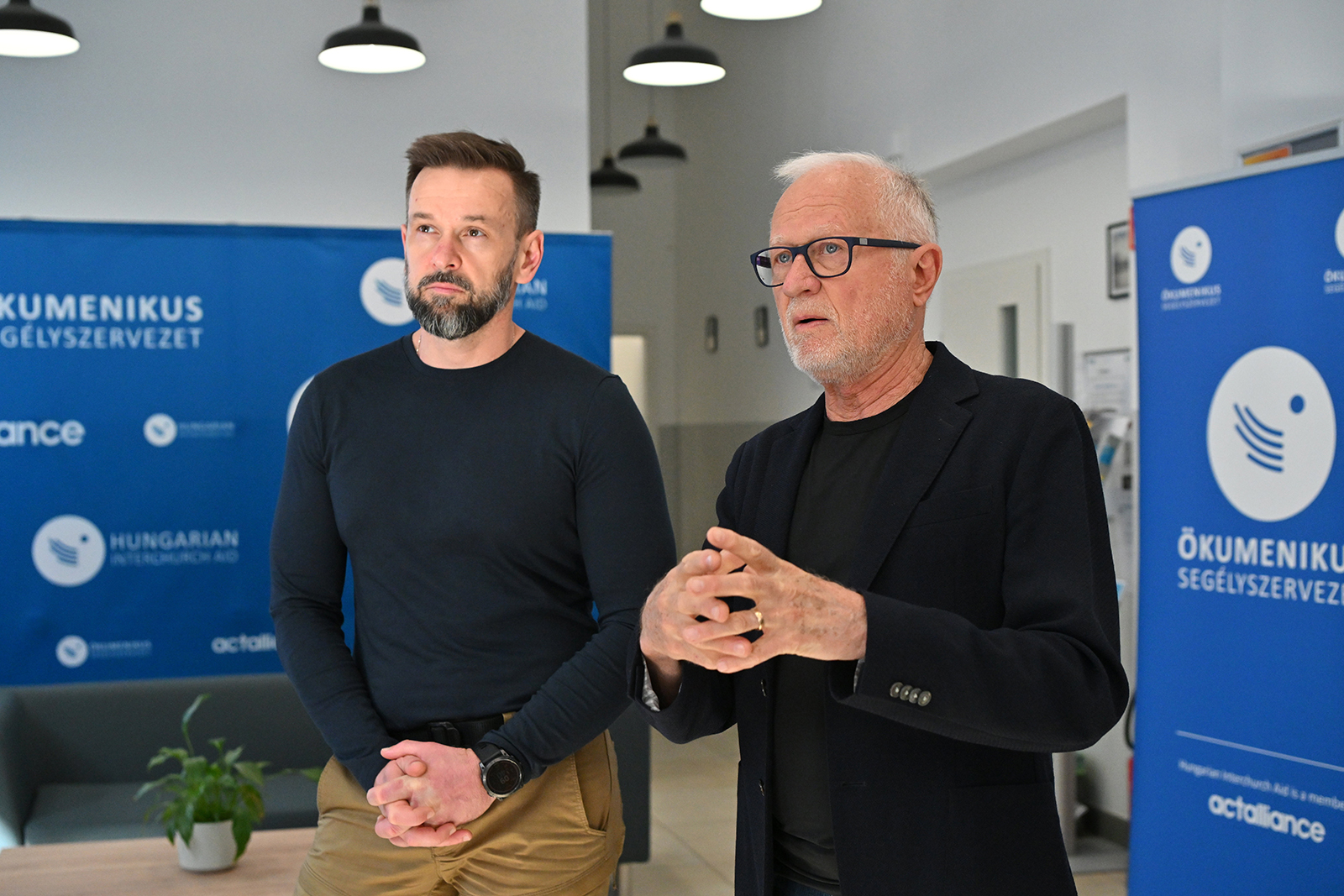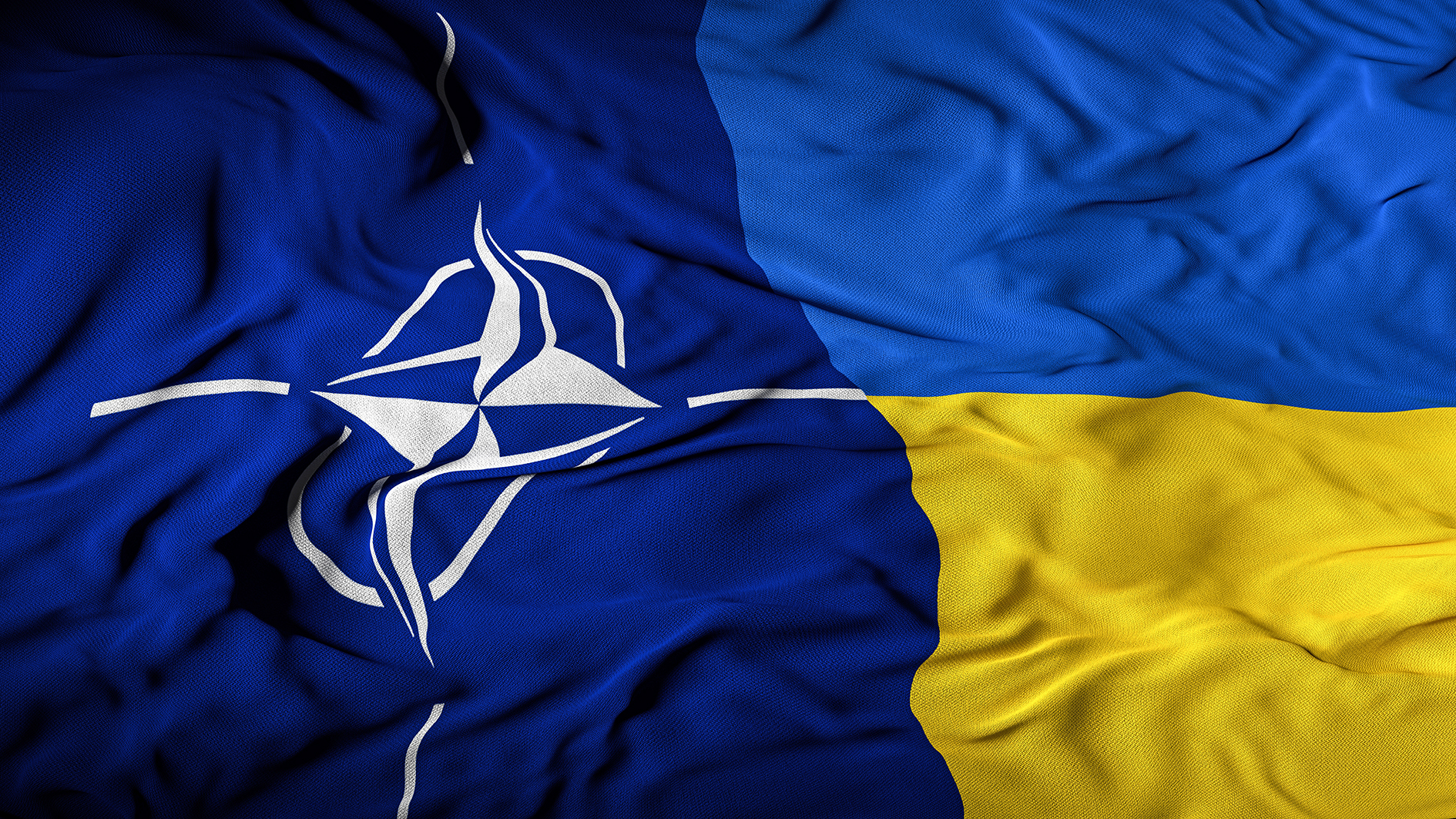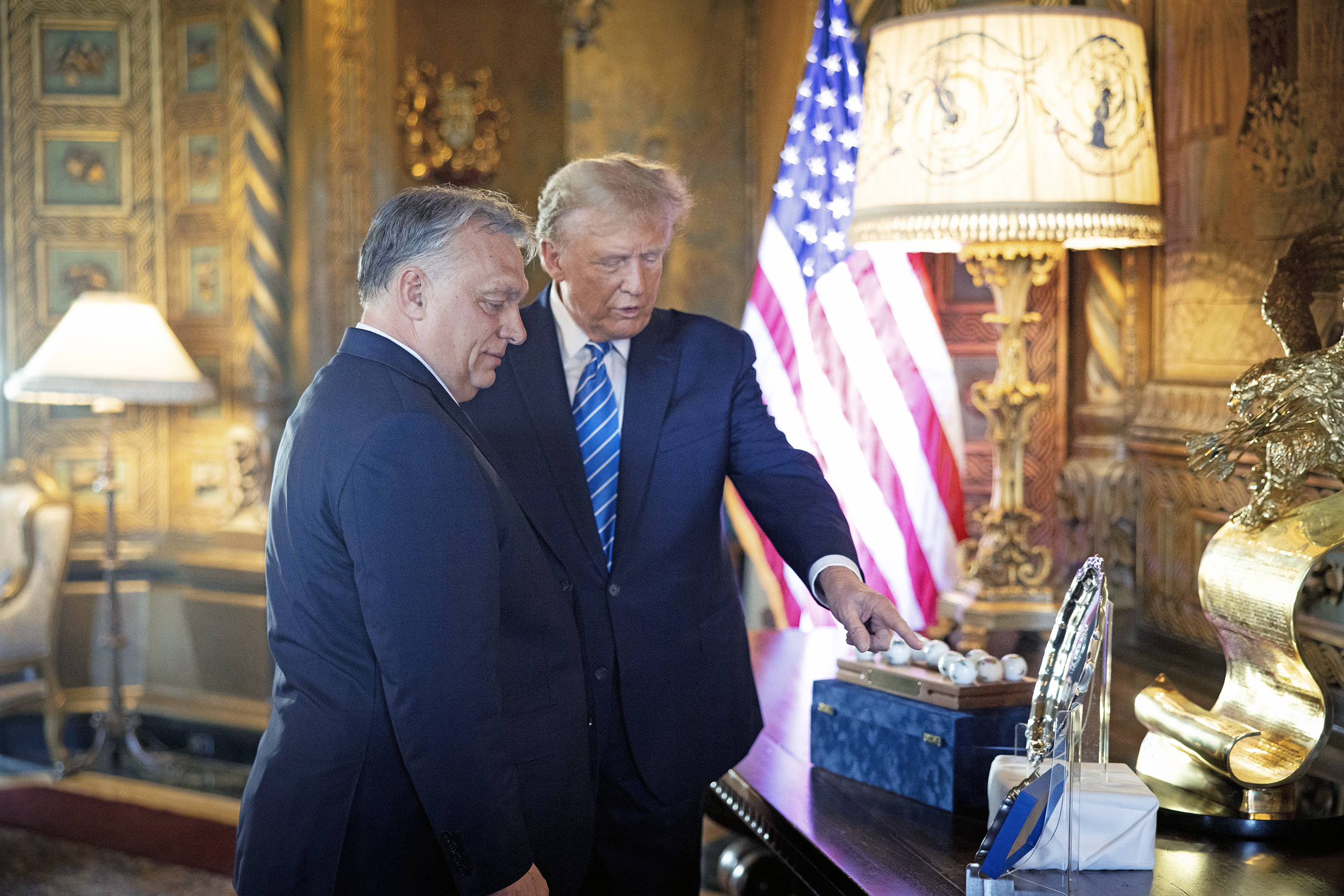Progress on Ukraine Funding and Sweden’s NATO Bid?
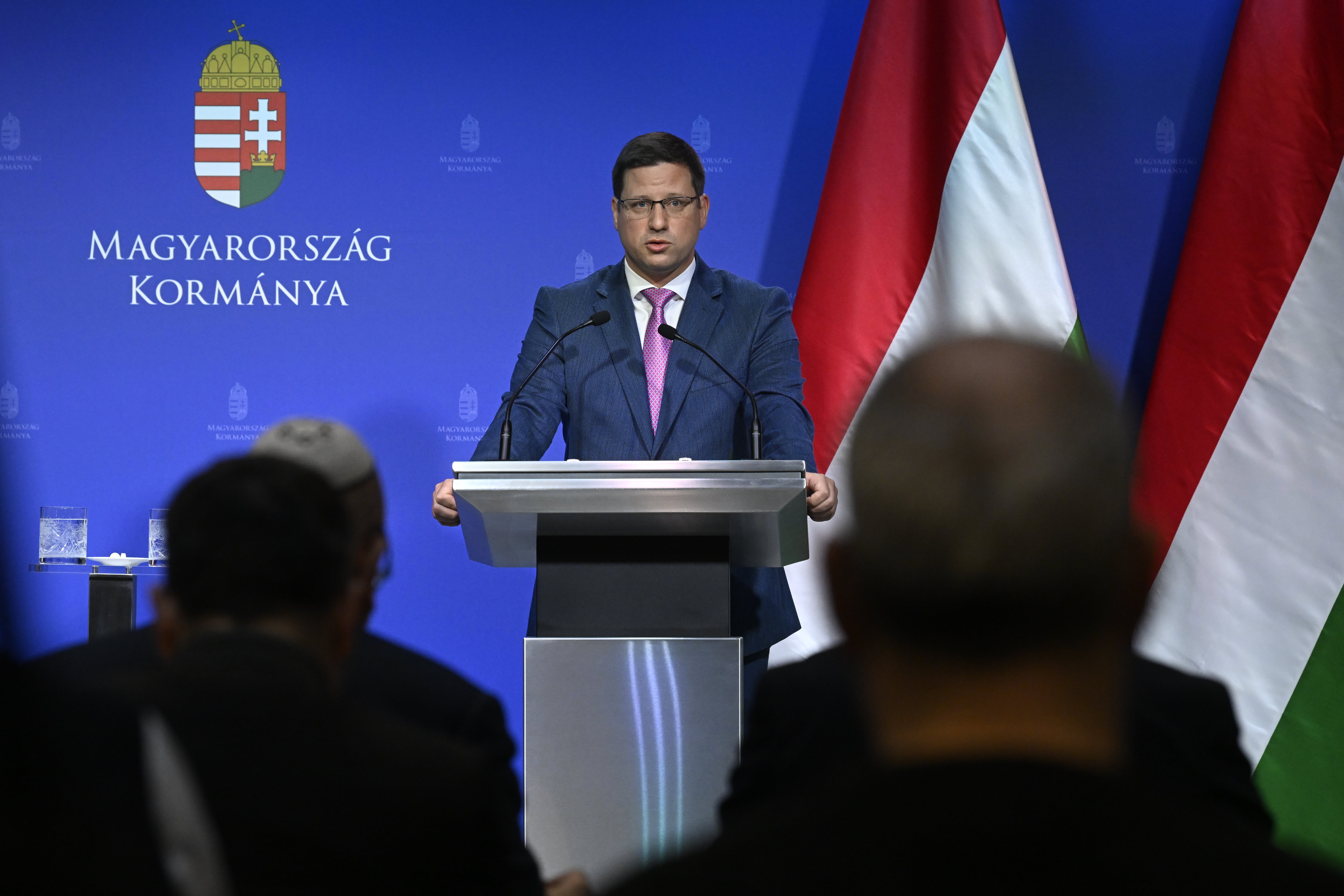
Minister Gergely Gulyás, head of the Prime Minister’s Office, at his regular Government Info press conference on Jan. 18.
Photo by Tamás Kovács / MTI.
Hungary continues to press for annual reviews of the Ukraine Facility, the European Union’s proposed instrument to provide financial support to Ukraine, in which the EUR 50 billion in aid would be distributed over four years, Minister of Finance Mihály Varga reiterated to his EU peers at a meeting in Brussels on Jan. 16.
This way, Varga suggested, the European Commission could review Ukraine’s need for resources and decide on the following year’s disbursement based on that assessment, he added.
“We ended the meeting with the hope that, when a final decision on the instrument is taken at an EU summit on Feb. 1, Hungary’s proposals will also be weighed,” Varga said. “Efforts must be made, as up to now, to work on a solution that is acceptable for all member states.”
Prime Minister Viktor Orbán made a similar suggestion during a press conference with his Slovak counterpart Robert Fico the same day when he said that the money used to support the beleaguered country should not be diverted from the EU budget.
“If we want to help Ukraine, which I think we need to do, we have to do it in a way that doesn’t harm the EU’s budget,” Orbán told a news conference. “But to give away EUR 50 bln from the EU budget for four years in advance is a violation of the EU’s sovereignty and national interests. We do not even know what will happen in a quarter of a year.”
Some allies continue to vent their frustrations about Orbán’s unwillingness to provide what they consider to be essential support for Ukraine. For instance, one U.S. State Department official expressed his disappointment with Hungary’s approach to Ukraine thus far.
“I think we’re disappointed that [...] Prime Minister Orbán has chosen to stand alone in the European Union in questioning the fight to support Ukrainians,” Jim O’Brien, the U.S. State Department’s Assistant Secretary for European and Eurasian Affairs, told a Zoom briefing.
Arguing for Consensus
Meanwhile, others continue to work on swaying Orbán toward consensus. Bloomberg News reported that Italian Prime Minister Giorgia Meloni had been making such overtures to Orbán, suggesting in return that his governing Fidesz party might join the far-right European Conservatives and Reformists European Parliament political group alongside Meloni’s Brothers of Italy. According to the report, Meloni is also urging Orbán to shift his stance on Ukraine’s EU membership aspirations and re-establish closer ties with Kyiv to join the ECR.
Yet, one leading politician believes that persuading Orbán will not be so simple, given the precedent set at the last EU summit.
“I know Viktor Orbán well [...] it won’t be easy to convince him,” Luxembourg’s Foreign Minister Xavier Bettel, who was previously his country’s prime minister, said on Jan. 23. He explained that the EU disbursing EUR 10 bln in frozen funds to Hungary in a veiled effort to garner support from Orbán just prior to the bloc’s decision on Ukraine was poor judgment.
“We cannot give the impression that to have a common position means to pay (Budapest),” he said. “This is not a good precedent.”
Others seek to punish Orbán by moving one step closer to suspending Hungary’s vote in the EU. On Jan. 12, some 120 of the European Parliament’s 705 members signed a letter calling for the invocation of the EU Treaty’s Article 7 against Hungary for what they see as Orbán’s transgressions.
“Hungary has repeatedly been criticized for abandoning the principles of the rule of law, and, especially after Hungary’s actions in disrupting the decision-making process at the European Council in December, we believe that it is time for the European Parliament to act,” the appeal says. “We believe that this is a necessary step towards protecting the values of the EU, as set out in the Treaty on European Union.”
Swedish Roadblock
In other Ukraine-related news, one of the direct consequences of Russia’s invasion was to persuade previously neutral Finland and Sweden that President Vladimir Putin was no longer a state actor who could be trusted and their security was better guaranteed by joining NATO. Any such application requires the agreement of all member states. Finland joined on April 4, 2023, but Hungary and Türkiye have held up Sweden’s bid.
On Jan. 23, one day before the second anniversary of the start of Russia’s full-scale invasion of Ukraine, Türkiye’s Parliament approved Sweden’s bid to join NATO. According to international news wire Reuters, President Tayyip Erdoğan is expected to sign it into law in the coming days.
That leaves Hungary as the only holdout, despite repeatedly saying it would not be the last to ratify. As recently as Dec. 12, 2023, Reuters quoted Swedish Foreign Minister Tobias Billström as saying Hungary had repeated that promise at a meeting with his Hungarian counterpart earlier in the week.
On Jan. 18, Gergely Gulyás, the Minister of the Prime Minister’s Office, suggested NATO accession was “not a priority” for Sweden. According to Reuters, Gyulás, speaking at his regular Thursday press briefing, said Sweden’s foreign minister or prime minister should “get in touch and ask what concerns the Hungarian parliament has” about Sweden’s NATO accession.
There does, however, seem to have been some movement. On Jan. 23, the PM’s press chief, Bertalan Havasi, announced that Orbán had invited Swedish counterpart, Ulf Kristersson, to Hungary to address Sweden’s NATO accession, according to state news agency MTI. The sides would also discuss strengthening bilateral ties and deepening mutual trust, Havasi said.
According to the international news wire Associated Press, Billström declined to say whether Kristersson would accept Orbán’s invitation. “We must first think through what the letter signals,” the foreign minister said. “What we hope is, of course, that Hungary will ratify the membership as soon as possible.”
This article was first published in the Budapest Business Journal print issue of January 26, 2024.
SUPPORT THE BUDAPEST BUSINESS JOURNAL
Producing journalism that is worthy of the name is a costly business. For 27 years, the publishers, editors and reporters of the Budapest Business Journal have striven to bring you business news that works, information that you can trust, that is factual, accurate and presented without fear or favor.
Newspaper organizations across the globe have struggled to find a business model that allows them to continue to excel, without compromising their ability to perform. Most recently, some have experimented with the idea of involving their most important stakeholders, their readers.
We would like to offer that same opportunity to our readers. We would like to invite you to help us deliver the quality business journalism you require. Hit our Support the BBJ button and you can choose the how much and how often you send us your contributions.


